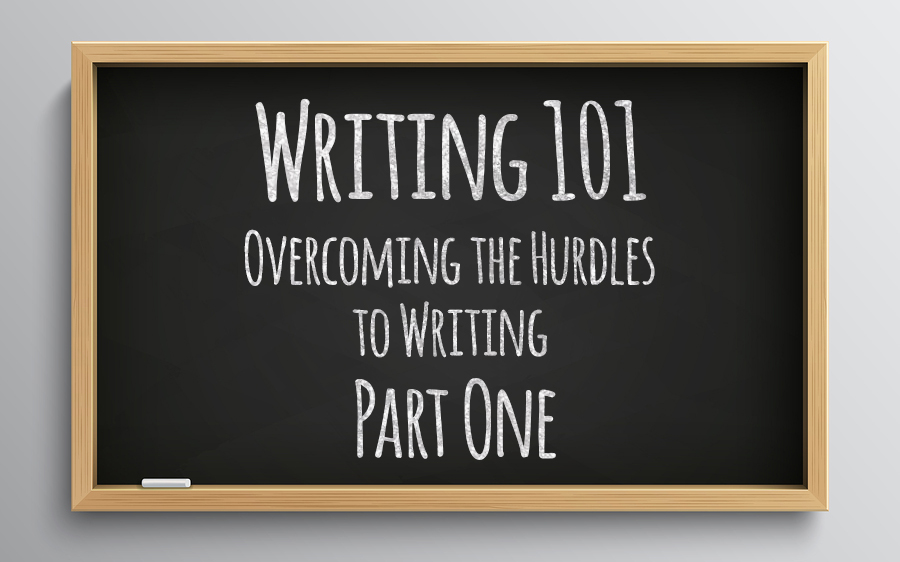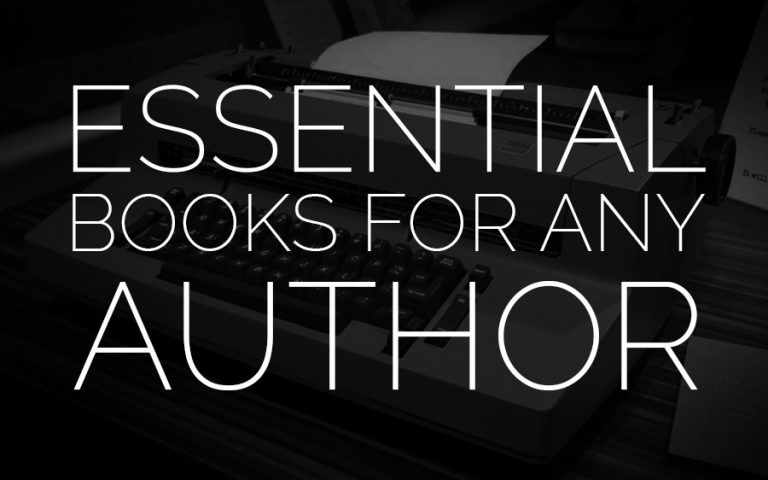Mastering Your Mind & Life: Overcoming the Hurdles to Writing – Part One
Anything that gets in the way of putting words down on paper is destructive to a writer’s career, but if you find yourself in this boat you can at least take comfort in the fact that you’re not alone. Most authors go through it at some point, but the successful ones find a way to overcome these mental and practical hurdles. In the first of a four part series, Ginger lays out a plan to get you focused on writing and clear your path to success!
“He was always trying to work. Each day he would try and fail. He laid the failure to Paris, the town best organized for a writer to write in that there is.”
In my last post, I mentioned that I’d been on a bit of a Hemingway bent recently – and that quote from A Moveable Feast – in which Hemingway describes F. Scott Fitzgerald’s frustration in finding time and opportunity to write – rung especially true to me.
We’ve posted a lot about the challenges of writing – of overcoming fear, and why it’s so important to write every day and even on how to create the perfect writing environment; but as anybody who has truly committed to making writing their passion and vocation, there’s one other issue we don’t often talk about:
Finding the time, space and solitude to write.
Stephen King is quoted as saying “write with the door closed, and edit with the door open” and to me that’s always made sense. Back when I was a commercial copywriter we’d brainstorm in a group, but writing was a solitary pursuit. It takes intense concentration, focus, and the magic and mystery of finding ‘the zone.’
‘The zone’ is that mystical state of mind in which words flow from your brain to the page; and finding it is akin to magic. Just yesterday I wrote nearly 10,000 words of a novel I was working on and while my fingers tapped feverishly on the keyboard I was there. I was in the story. I was the characters I wrote about. In fact six hours later, when I finally emerged from my story back into that drab, dreary place called reality, I realized I was desperate to have a pee, starving hungry, and quite possibly dangerously dehydrated. I’d literally disconnected from the selfish demands of my puny human body because the narrative demanded my full attention.
Now this is probably not a healthy state of affairs for any writer, but it does highlight how the writing process goes. When an author sits down in front of their keyboard, they need time to write. And that’s not just time in a tangible state – minutes and hours – but in terms of the environment they inhabit; the peace, solitude and quiet of a writing space.
It’s something that non-writers simply don’t understand – it really is like magic, and the people who don’t inhabit this world of ours are muggles. People just don’t understand what it takes to enter that incredible environment in which fantasy takes the form of words; or how easy it is to be snapped out of it.
A case in point – I’m part of a fantastic monthly movie club, in which a bunch of friends get together to discuss a film we’ve all decided to watch. The night before our last event, I hadn’t actually watched the film yet; and my wife helpfully suggested “I could put it on in the background while I wrote.”
I appreciate her enthusiasm – but this is exactly the sort of thing I’m talking about. I’ll happily catch up with my missed episodes of The Flash, Legends of Tomorrow and Doctor Who while I’m doing the ironing – but you can’t write and focus on a movie at the same time.
The summer of 2018 was when my writing career finally found its wings and I remember it as the toughest two months of my life because I’d finally found my groove with writing – making enough from the sales of my books to replace a full-time job – and yet the kids were home all summer and I hadn’t yet received the check from Amazon that would have paid for them to go to camp. So I had to balance keeping three rambunctious kids entertained while also trying to keep the momentum of my writing career going. It was a Catch 22 situation – any time I wasn’t focused on the kids I felt like a terrible parent, but any time I wasn’t writing I was worried about how I’d pay the mortgage in three months time.
It’s an impossible task – and as the example of the movie club shows, often a thankless one. People just don’t seem to ‘get’ how difficult and time-consuming writing is, and the level of immersion you need to truly enter a productive state of mind. It can be incredibly frustrating to try and sit down to write and have kids running around you, demanding juice boxes and Robux, or have friends or family members asking you questions – even innocent and well-intentioned ones.
I am a writer – and the most frustrating part of my life is the fact that the primary focus of my career is the one thing that I find most difficult to find time, space and opportunity to do. There is nothing worse than thinking about how you should have completed that chapter by now, or finished that novel, or sent out that Advanced Reading Copy…
…knowing that if you’d only had an additional hour… or two… or six, you’d have got it done.
And yet even worse and more shameful is when you use that frustration to excuse bad behavior – like snapping at your spouse or kids because you’re trying desperately to get something done – you have the end of a sentence balanced on the knife-edge of your fingertips – and yet suddenly they break the spell to ask something like “can I have a juice-box?” or “will you take the garbage out?”
The frustration, anger, and shame is real. It’s really real. For somebody who is serious about writing – doubly so for somebody who makes their career of it – the intersection of that trifling, annoying, frustrating thing called reality (or family, or responsibility, or work or food) can be a source of incredible mental anguish.
But it can also be a horrible environment to foster at home – and as frustrating as these interruptions can be, they should never be used as an excuse to raise your voice, pout or cause discord at home. One of the reasons we seek to become writers is so we get to do what we love in the place that we love – surrounded by our family – and there’s something truly Faustian about the idea of making that dream a reality and then letting our petty frustrations turn it into a nightmare instead.
So what’s the answer to this conundrum? Well, if I truly had the answer to that I’d probably not be writing this article right now – I’d be hammering away at a keyboard like Jim Carrey in Bruce Almighty. But the truth is two-fold; and you might not like what I’m going to say next.
Some of this is your fault.
The first and most important truth you have to accept as a writer is that the only person who has control over your writing environment – and your reaction to it – is you.
This is a case of ‘do as I say, not as I do’ because I’m as guilty as anybody of failing to live up to this – but it’s the single most important factor in finding a sustainable, comfortable groove to your writing; and how it fits in with that ‘reality’ thing.
You have to get your head straight.
The friend I went to Chicago with studied psychology before he took up architecture – and as a result, he says a lot of stuff that sounds really, really smart. One of these things is something called the ‘locus of control’ and that refers to the extent to which an individual believes they have control over the outcome of their lives. As in, to what extent they’re responsible for the stuff that happens to them, as opposed to outward forces.
To writers, the locus of control is a pretty messed up concept; because we literally invent people in our head and then direct the course of their lives through the whims of our plot. It’s difficult not to view our own lives like that; and blame all the frustrations on our lack of getting writing done on external circumstances. I know that I’ve spent a lot of time blaming my missed deadlines on my kids, or my wife, or the bloody dog (seriously, if she throws another ball under the couch and then spends half an hour scratching for it, I swear I’m booking tickets to the Yulin Meat Festival.)
(I’m joking.)
(Really!)
But the truth is that we have a lot more responsibility for these things than we often credit ourselves with – just like every good writer knows that the plot should really be driven by a character’s motivations and choices, not just the external decisions an author makes about the plot.
But what do I mean by that? Well – for a start it’s time to look at your circumstances and mindset before you succumb to frustration, or anger – or blame your lack of progress on external forces. There is so much you have control over and can improve about your life and you should really focus on that – because it’s something you can control – before you look at outward obstacles.
Step #1 – Get Your Mind in Order
Perhaps the most important, yet difficult aspect to overcoming frustration with your writing environment is mental. It’s all in your head – and if you don’t believe that, just remember that all the characters and stories are all in your head too, and you know how powerful they can be.
When you find yourself facing frustration with the environment in which you’re (trying to) write in, the first thing you should do is take a deep, deep breath. Don’t succumb to anger, frustration or despair – because those are the three emotions that are not conducive to a good writing mindset.
The first thing you have to say out loud and accept is that: This is your reality.
There are changes you can make to it – ways you can improve it – but your life and circumstances are currently what they are and you need to find a solution to your current frustration that works around them. You can’t take a week off from being a parent, or totally ignore your spouse for a month, or call in sick for six weeks if you’re trying to balance writing and a job. These are real life responsibilities and you have to face them.
For me, the first step beyond this simple realization was to figure out where I had the opportunities to write – and take them.
Personally, I’m in the Hemingway camp – I do my best writing early in the morning. So I looked at my daily schedule and figured out that if I had to start getting the kids up and dressed for school at around 6:30am, the only way I could take advantage was to get up earlier than that.
It was tough – bloody tough – but I eventually got into the groove of getting up at 5am every morning. These days, I often actually get up at 4am. It’s lunacy, I know; but those two or sometimes three hours of peace and solitude in the morning are the most productive of my whole day. I have a little routine in which I come downstairs, do some exercise, put on some coffee and I put in a good stint of work while my spouse and kids are still fast asleep upstairs.
It wasn’t easy to get into this habit, but now that I’m there I’ve found that the early morning is the happiest part of my day. It sets me up for the entire morning and I can feel good about things if I’ve got some solid writing done by the time the first sleepy little bear plods down the stairs asking for chocolate milk and a bowl of cereal.
Now, if this sounds like a nightmare to you, don’t worry – you don’t have to follow the Hemingway method. A lot of other writers are night owls, and their most productive period is after the kids have gone to bed. They can write until 3am and churn out beautiful prose and some of the best writers I know often send me a “I’m going to bed” message on Facebook at the same time I’m getting up in the morning.
It doesn’t matter when your best time for writing is – only that you figure it out and leverage it. Work out what period works best for you around your family schedule and then you’ll start to see windows of opportunities that you can exploit to get your writing done.
It’s not easy. It will involve getting out of your comfort zone to get things done. It will involve change – which is the biggest, scariest idea there is – but it’s also the best and most powerful tool you have towards ending your frustration with your writing environment; because you have complete control over it.
And whether you decide to get up at stupid o’clock in the morning, or stay up until absurd o’clock at night, there are things you can do to make that decision easier – which brings us to the next suggestion – getting your body in order to take advantage of this.
But that will have to wait until next week, so stay tuned – and feel free to provide some of your own tips in the comments below!













1 Comments